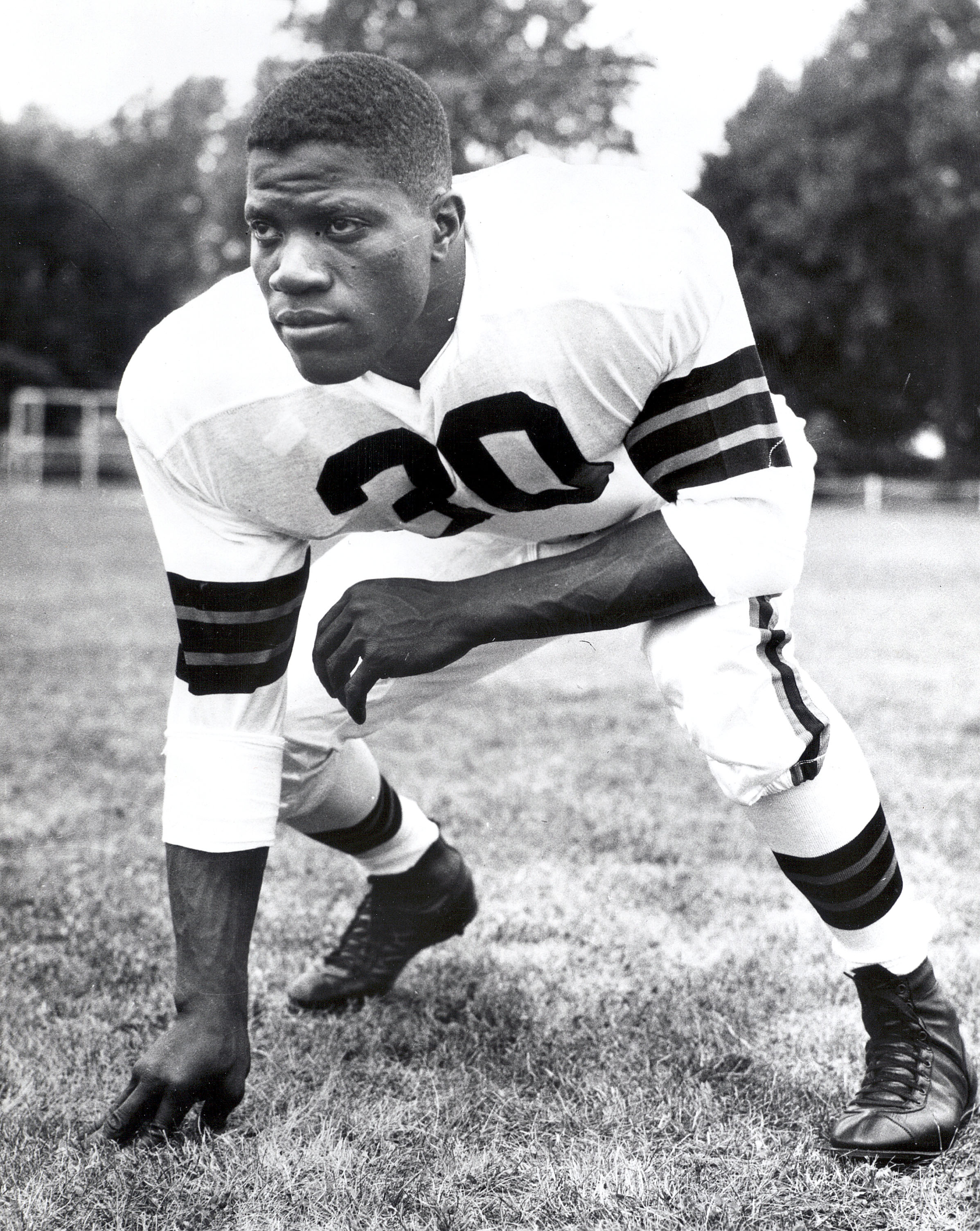BREAKING DOWN BARRIERS
Growing up on the east side of Columbus in the 1920s, Bill Willis experienced significant challenges in his early years. After his father died of pneumonia when Willis was just 18 months old, Willis was raised by his mother and grandfather amid the Great Depression and during a painful era of racial segregation and discrimination.

Pictured: Bill Willis. Photo courtesy of the Willis family.
Despite the adversity he faced, Willis would go on to become a legendary figure in professional football, breaking down barriers and redefining the sport for future generations.
As a student at East High School, Willis was strong and quick on his feet, excelling at football and track and field. Willis’ skill prompted his coach to reach out to Paul Brown, The Ohio State University’s football coach, and encourage Ohio State to recruit Willis. Although Willis was considered small for a lineman at 6’2” and just over 200 pounds, his performance was unmatched. He joined the Ohio State football team as a sophomore in 1942.
From there, Willis’ reputation as an outstanding athlete continued to grow. While playing for Ohio State, he helped lead the Buckeyes to the school’s first national championship in 1942. In 1943 and 1944, Willis received All-American honors, making him the first Black All-American from Ohio State.
“Playing the game of football, I did learn the secret to success…I tell every young person that there is a formula for success. And that formula is to always do the very best you can with what you have wherever you are.”
Bill Willis in his 1977 enshrinement speech into the Pro Football Hall of Fame
At the time Willis graduated from Ohio State in 1944, there were no Black professional football players—nor had there been for more than a decade. Although the National Football League (NFL) did not officially exclude Black players, there was an informal agreement among team owners that effectively banned them from the game. However, Paul Brown—Willis’ coach at Ohio State—had recently founded a new team, the Cleveland Browns, where he was also the head coach. Brown wanted Willis to try out for the team.
Once again, Willis’ formidable speed and agility were top-notch, securing him a spot with the Cleveland Browns, where he played four successful seasons before retiring in 1953. Willis was the first Black starter in professional football and, alongside teammate Marion Motley, is widely credited for helping to break the sport’s color barrier. In 1977, because of his impressive skill and enduring impact on the game, Willis was elected to the Pro Football Hall of Fame.
Today, Willis is celebrated for his accomplishments both on and off the field. After retiring from the NFL, Willis served as the Director of the Ohio Youth Commission, a state agency dedicated to combatting criminality among young people. Willis, who passed away in 2007 at the age of 86, also raised three sons with his beloved wife, Odessa. His legacy—as a husband, father, professional athlete, and community leader—remains an inspiration, demonstrating the power of perseverance, hard work, and service to others.
“People would ask us, ‘Did we want to play football, to be like him?’” Willis’ oldest son, Bill Willis, Jr., told The New York Times in 2020. “Well, we wanted to be like the man he was.”